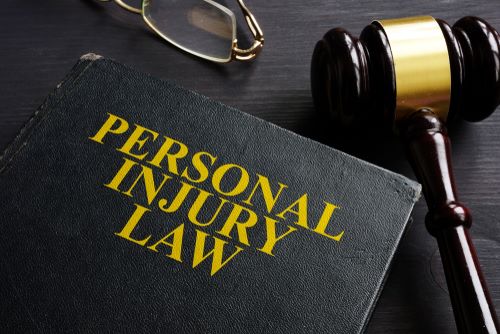If you experience a slip and fall, you may have a potential legal claim. The best way to know for sure is to talk to an experienced Douglasville personal injury lawyer. They can work with the defendant’s insurance company to try to settle your claim. If this isn’t possible, they can file a lawsuit on your behalf. In order to do this, however, your attorney needs plenty of time to prepare your case. This can take several months. The last thing you want to do is run out of time. If that happens, you could lose your right to ever pursue the other party.
The Statute of Limitations in Georgia is Only 2 Years
Every state has something called a statute of limitations. This is true for both criminal and civil cases. This statute outlines how long a plaintiff has to file a lawsuit against another party. For slip and fall cases, this period is only two (2) years. The two years starts on the date you suffered your slip and fall accident.
Two years may seem like an awful lot of time. However, you’d be surprised how fast it can fly by. This is especially true if you suffered serious injuries in your slip and fall. If you need surgery or long-term physical therapy, it could be months or even a year before you’re better. The last thing you want to do is file suit before you know just how bad your injuries are. This is why so many plaintiffs end up coming close to missing the filing deadline. They just don’t realize how much work needs to be done in that two-year period.
What Happens if Your Douglasville Personal Injury Lawyer Doesn’t File in Time?
If your Douglasville personal injury lawyer doesn’t file suit in time, your case will be dismissed. Typically, one of the first things a defense lawyer looks for when they receive your complaint is the date of injury. If you’ve gone beyond the two years allowed by Georgia law, they’ll file a motion to dismiss. The judge will have no choice but to grant this motion. The same thing is true if the judge notices, on their own, that the statute of limitations period has run. They’ll dismiss your case on their own and prevent you from ever filing it again.
The judges are very strict when it comes to this rule. There are very few exceptions to the statute of limitations rule. If you were a minor at the time of your slip and fall, the period may be extended. The same is true if you were declared mentally incompetent at some point in the two years. Finally, if your Douglasville personal injury lawyer can prove that the defendant committed fraud to evade prosecution, the period may be extended. However, there’s never a guarantee that this will happen.
Never Wait Until the Last Minute to Call a Skilled Douglasville Personal Injury Lawyer
It takes a Douglasville personal injury lawyer months to prepare for a slip and fall case. They need to gather evidence so they can prove negligence. They also need to make sure they file suit against all possible parties. It’s important that you name all defendants in your initial complaint. You also want to give your attorney plenty of time to try to settle your case. More than 95% of all personal injury cases in Georgia do settle. Chances are, yours will too. But your Douglasville personal injury lawyer needs ample time to do this.
Call and Talk to a Seasoned Douglasville Personal Injury Lawyer
If you or your loved one are hurt in a slip and fall accident, you need help. After getting medical treatment, the first thing you should do is call and talk to a seasoned personal injury lawyer in Douglasville. Sit down with someone who’s handled cases like yours before. They know how to negotiate with the defendant’s insurance company.
The best thing to do is call today and schedule your free, initial consultation. You can do this by phone or skype if necessary. Call today and set up a date and time that works for you. Take advantage of this first meeting. Your Douglasville personal injury lawyer can give you an idea of what your case may be worth. The consultation is free, and you don’t pay anything until your case is resolved.






